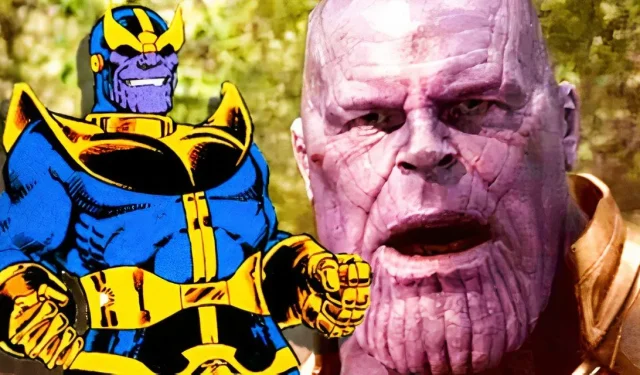When it comes to Marvel’s rogues’ gallery, few villains captivate audiences quite like Thanos. Introduced in the comics and later brought to life in cinema, he looms large as a formidable cosmic adversary. Fans of the Marvel Cinematic Universe (MCU) remember his ominous debut in the post-credits scene of The Avengers, where his sly, purple grin hinted at his menacing role ahead. While the film adaptation provided thrilling moments, it left many comic enthusiasts feeling that the character’s deeper emotional complexities were overlooked.
In translating the iconic Infinity Gauntlet storyline crafted by Jim Starlin, George Pérez, and Ron Lim, the MCU unfortunately omitted one of Thanos’s most compelling traits: his emotional depth. While he is undeniably lethal, the original comic portrayal presents a character driven by a tragic obsession rather than cold, calculated evil. At his core, Thanos begins as a lovesick fool, fixated on a desire for the attention of Mistress Death, shaping his motivations in ways the MCU barely touched upon.
The Tragic Infatuation: Thanos and Mistress Death
Mistress Death: A Defining Presence from Captain Marvel #26 to The Infinity Gauntlet
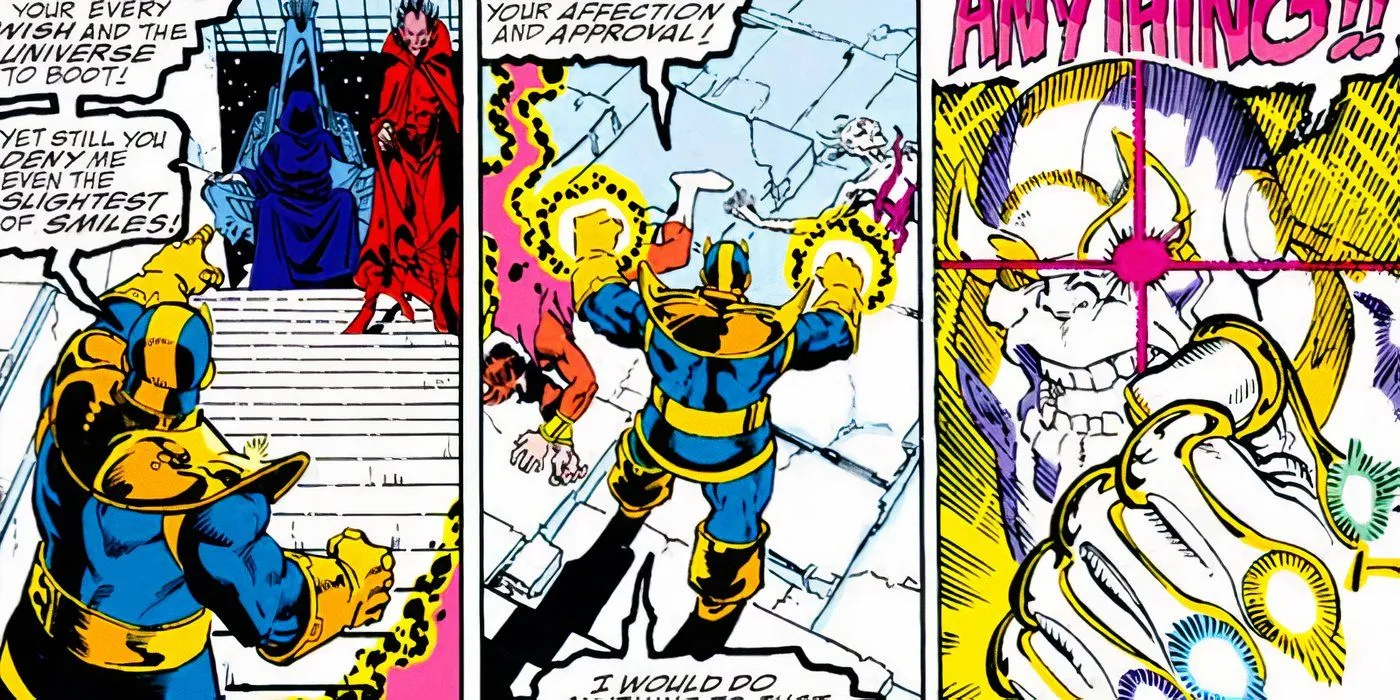
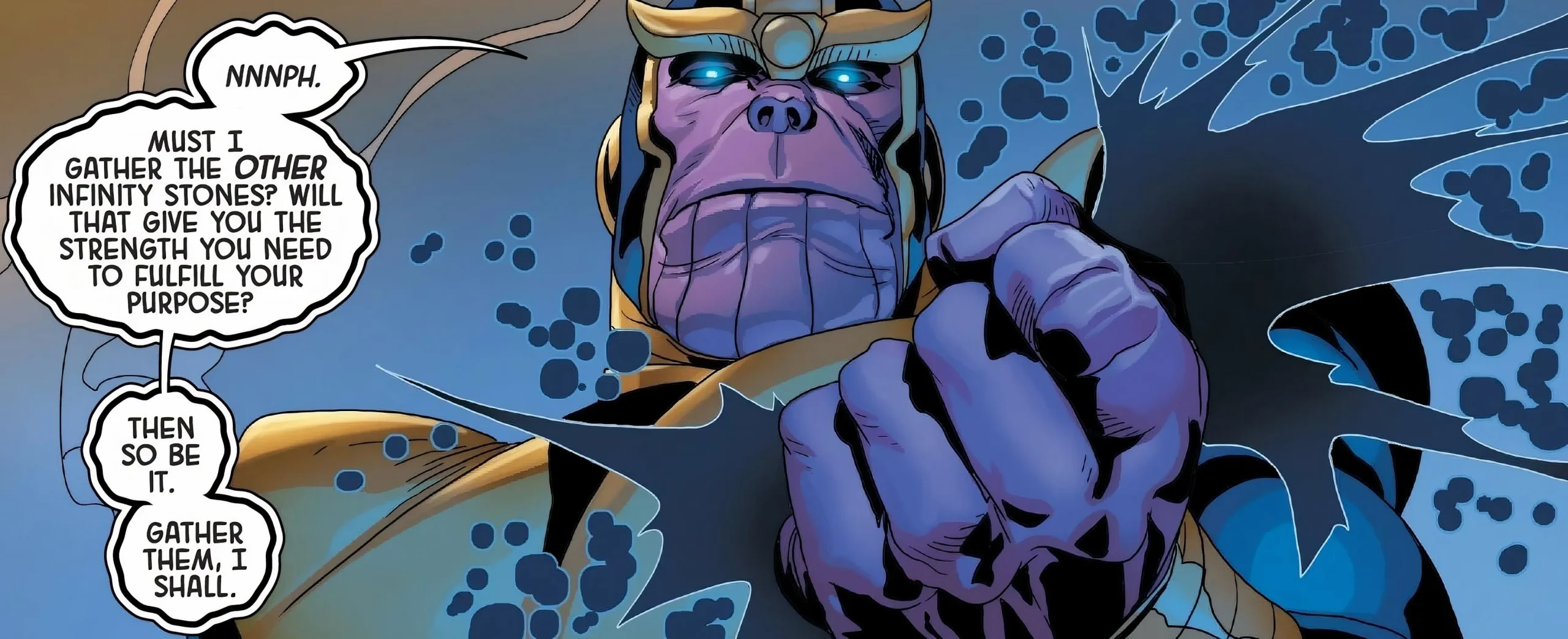
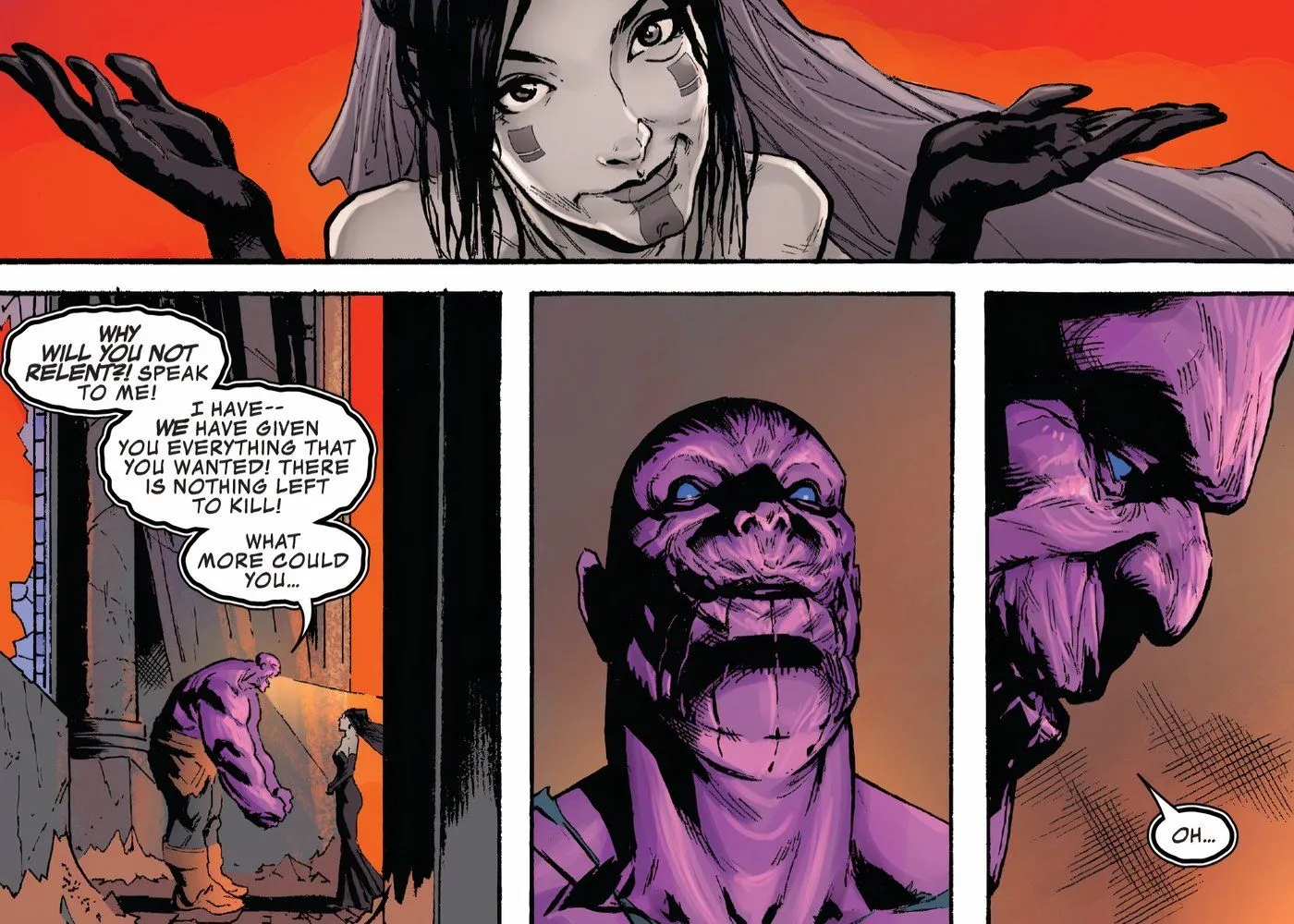
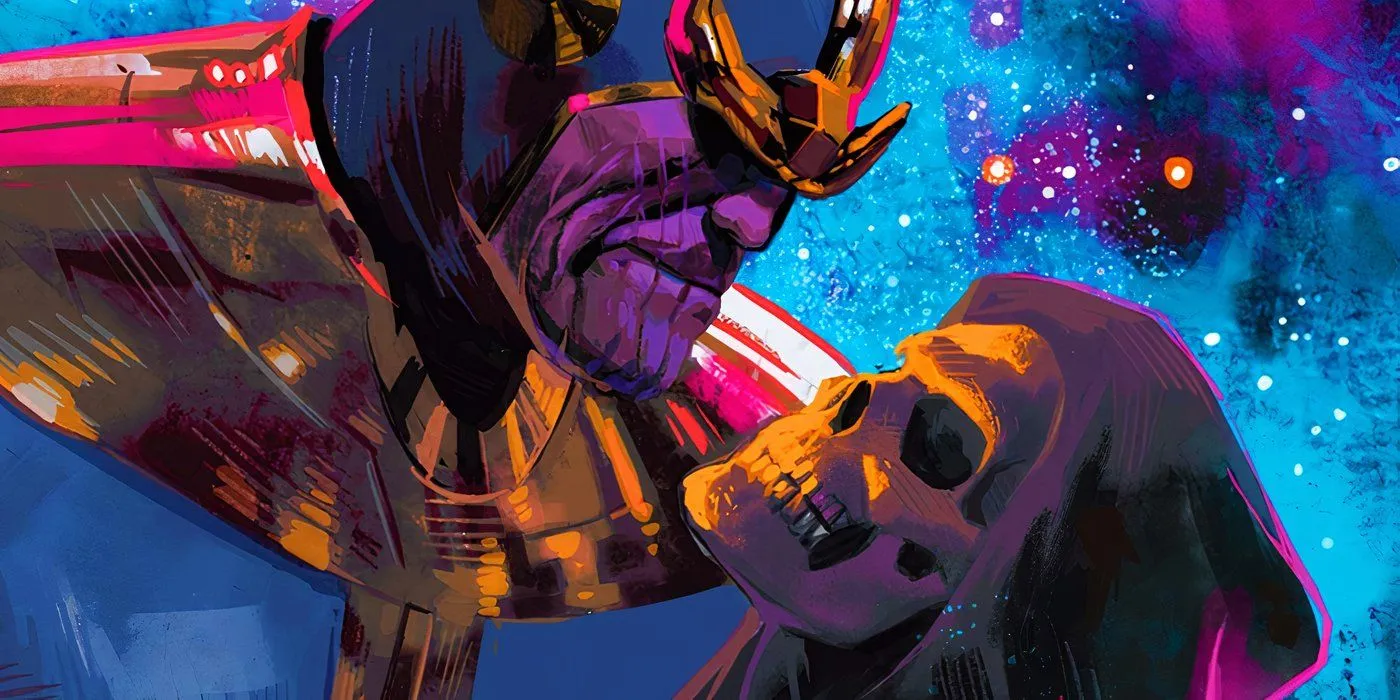
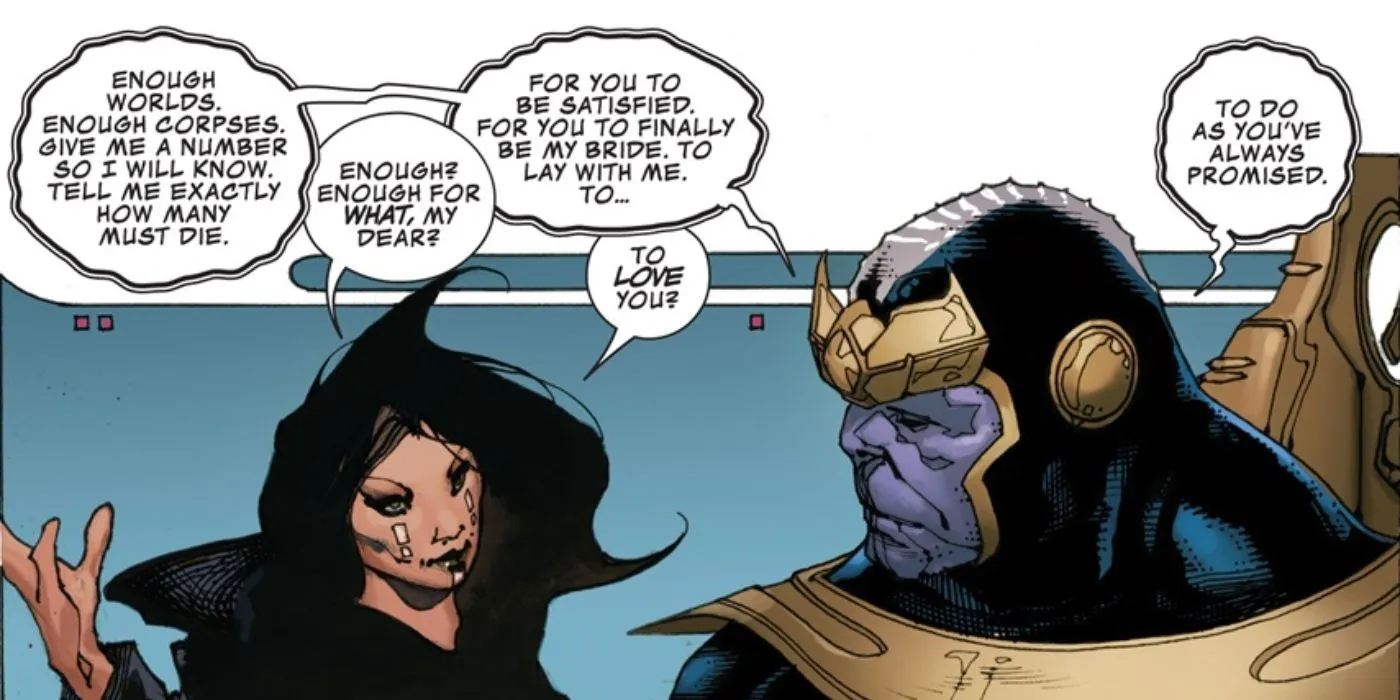
Within the pages of the original Infinity Gauntlet series, Thanos is resurrected by Death herself, tasked with restoring balance to the universe. However, instead of focusing solely on his duties, he perceives this opportunity as a chance to win over Lady Death. Despite her relentless indifference, Thanos is driven by a desperate need to earn her admiration. His extreme actions range from transforming his granddaughter Nebula into a zombified version of herself to constructing elaborate shrines in her honor, culminating in his grim decision to eradicate half of all life in the cosmos—all in vain, as Death remains unresponsive to his advances.
This infatuation is a recurring theme in Thanos’s narrative arc. While relinquishing his obsession with Death could have positioned him as the archetypal villain, Thanos’s emotional turmoil makes this impossible. In the cinematic representation, Thanos’s motives primarily revolve around correcting cosmic imbalances; however, the duality of his actions in the comics reveals a far deeper emotional struggle. The desire to impress Death is a haunting backdrop that amplifies the villain’s cruelty, distinguishing him from his big-screen counterpart.
The Complex Villainy of Thanos: Love Makes Him More Terrifying
Unrequited Love: The Driving Force Behind Thanos’s Determination
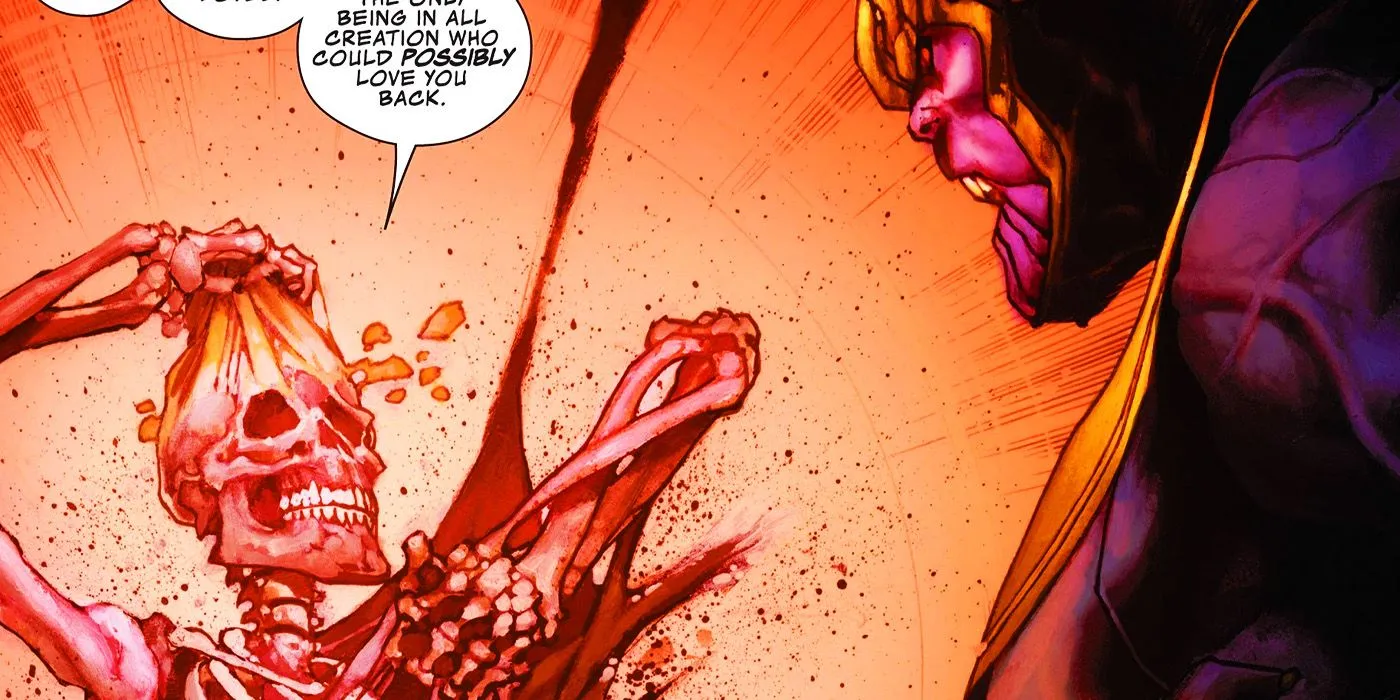
Contrasting sharply with his portrayal in the MCU, the comic version of Thanos is imbued with vibrant emotions and fraught desires. While the film’s Thanos is portrayed as a calculating architect of destruction, the comic Thanos exhibits emotions that render him even more formidable. His sporadic, impulsive decisions often stem from a desperation to gain the affection of Death, blending madness with a horrifying kind of determination. This makes him unpredictable; violence ensues as part of his chaotic quest for her recognition.
In the comics, Thanos’s ultimate aim is a mere acknowledgment from Death—a glance, a word, a sign of reciprocation. This enduring obsession intensifies his characterization and elevates his status as a villain beyond mere ambition. As he escalates his actions in tragic pursuit of something unattainable, Thanos becomes a figure of paradoxical terror and poignant longing, a distinct feature lacking in the more single-minded persona presented in the films. Thus, while Josh Brolin’s Thanos commands significant presence onscreen, it fundamentally omits the rich emotional depth that drives the character in the comics.
